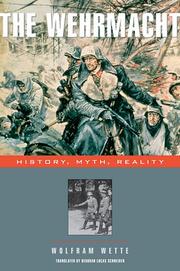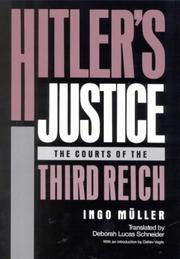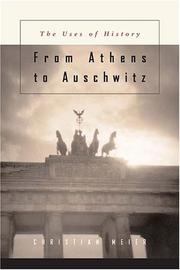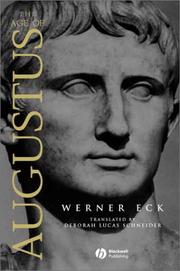| Listing 1 - 10 of 10 |
Sort by
|

ISBN: 0674022130 Year: 2006 Publisher: Cambridge, Mass. ; London Harvard University Press
Abstract | Keywords | Export | Availability | Bookmark
 Loading...
Loading...Choose an application
- Reference Manager
- EndNote
- RefWorks (Direct export to RefWorks)
World War, 1939-1945 --- Nationalism --- 2ème guerre mondiale --- Nationalisme --- Atrocities. --- History. --- Atrocités --- Histoire --- Germany. --- Officers --- Germany --- Allemagne --- Armed Forces --- History --- Forces armées --- 2ème guerre mondiale --- Atrocités --- Forces armées

ISBN: 0674051114 9780674051119 Year: 1997 Publisher: Cambridge (Mass.): Harvard university press,
Abstract | Keywords | Export | Availability | Bookmark
 Loading...
Loading...Choose an application
- Reference Manager
- EndNote
- RefWorks (Direct export to RefWorks)
Hellenism --- Hellénisme --- Athens (Greece) --- Athènes (Grèce) --- History. --- Histoire --- Hellenism. --- Hellénisme --- Athènes (Grèce)

ISBN: 1850432945 Year: 1991 Publisher: London Tauris
Abstract | Keywords | Export | Availability | Bookmark
 Loading...
Loading...Choose an application
- Reference Manager
- EndNote
- RefWorks (Direct export to RefWorks)
Book
ISBN: 1782044582 1571139125 9781782044581 9781571139122 Year: 2015 Publisher: Rochester, New York : Camden House,
Abstract | Keywords | Export | Availability | Bookmark
 Loading...
Loading...Choose an application
- Reference Manager
- EndNote
- RefWorks (Direct export to RefWorks)
When it broke out in 1906, the scandal surrounding Prince Philipp Eulenburg, closest confidant of Emperor Wilhelm II, shook the Hohenzollern monarchy and all of Europe to the core. Sparked by accusations by the journalist and publicist Maximilian Harden, the scandal dominated European headlines until 1909; it was the first modern scandal in which homosexuality was openly discussed. Particularly shocking was Harden's claim that Wilhelm had long been under the influence of a homosexual camarilla led by Eulenburg. Allegedly, this clique had brought about Bismarck's dismissal, cut off the emperor from his people, and, with its undue pacifism, maneuvered Germany not only into isolation, but to the brink of war during the Morocco Crisis of 1905/6. The scandal came to be a forum for the German public to debate diverse political, social, and cultural issues: honor, friendship, marriage, privacy, sexual mores, anti-Semitism, spiritualism, class struggle, submission to authority, and enthusiasm for the military. Norman Domeier's book, now in English translation, is the first scholarly monograph on the scandal. It draws on a wealth of primary material, including ca. 5,000 newspaper articles as well as minutes of court trials, private correspondence, government files, pamphlets, diaries, memoirs, and images. Domeier's historical analysis offers fascinating insights into the cultural history of German politics in the fateful years of transition from the Belle Époque to the 'Iron Age' of the world wars. Norman Domeier is Assistant Professor at the University of Stuttgart's Historical Institute.
Scandals --- Government and the press --- History --- William --- Eulenburg, Franz, --- Germany --- Politics and government --- Press --- Press and government --- Press policy --- State and the press --- Freedom of the press --- Press and politics --- Government policy --- Vilʹgelʹm --- Wilhelm --- Guilelmus --- Wei-lien --- Vilkhelm --- Friedrich Wilhelm Viktor Albert, --- Guillaume --- Guillermo --- 20th Century. --- Bismarck. --- Cultural History. --- Emperor. --- Eulenburg Affair. --- European History. --- German Empire. --- Germany. --- Homosexual Camarilla. --- Homosexuality. --- Political Culture. --- Politics. --- Public Scandal. --- Scandal. --- Wilhelm II. --- Wilhelm.

ISBN: 0674806883 Year: 1998 Publisher: Cambridge (Mass.) : Harvard university press,
Abstract | Keywords | Export | Availability | Bookmark
 Loading...
Loading...Choose an application
- Reference Manager
- EndNote
- RefWorks (Direct export to RefWorks)

ISBN: 9780972598170 Year: 2007 Publisher: Bethesda, Md. Zaccheus Press
Abstract | Keywords | Export | Availability | Bookmark
 Loading...
Loading...Choose an application
- Reference Manager
- EndNote
- RefWorks (Direct export to RefWorks)
Concentration camp inmates --- Bernard, Jean, --- Catholic Church --- Dachau (Concentration camp) --- Clergy --- History
Book
ISBN: 0674051122 Year: 1999 Publisher: Cambridge Harvard university press
Abstract | Keywords | Export | Availability | Bookmark
 Loading...
Loading...Choose an application
- Reference Manager
- EndNote
- RefWorks (Direct export to RefWorks)
Hellenism --- Athens (Greece) --- -History

ISBN: 0674016920 Year: 2005
Abstract | Keywords | Export | Availability | Bookmark
 Loading...
Loading...Choose an application
- Reference Manager
- EndNote
- RefWorks (Direct export to RefWorks)
History --- Histoire --- Philosophy. --- Philosophie --- Philosophy
Book
ISBN: 9780520248953 0520248953 0520287592 0520943147 1283331837 9786613331830 9780520943148 9780520287594 9781283331838 Year: 2011 Publisher: Berkeley : University of California Press,
Abstract | Keywords | Export | Availability | Bookmark
 Loading...
Loading...Choose an application
- Reference Manager
- EndNote
- RefWorks (Direct export to RefWorks)
The infamous emperor Caligula ruled Rome from A.D. 37 to 41 as a tyrant who ultimately became a monster. An exceptionally smart and cruelly witty man, Caligula made his contemporaries worship him as a god. He drank pearls dissolved in vinegar and ate food covered in gold leaf. He forced men and women of high rank to have sex with him, turned part of his palace into a brothel, and committed incest with his sisters. He wanted to make his horse a consul. Torture and executions were the order of the day. Both modern and ancient interpretations have concluded from this alleged evidence that Caligula was insane. But was he? This biography tells a different story of the well-known emperor. In a deft account written for a general audience, Aloys Winterling opens a new perspective on the man and his times. Basing Caligula on a thorough new assessment of the ancient sources, he sets the emperor's story into the context of the political system and the changing relations between the senate and the emperor during Caligula's time and finds a new rationality explaining his notorious brutality.
Emperors --- Caligula, --- Rome --- History --- Gaius Caesar Germanicus, --- Gaius, --- Gaius, Julius Caesar Germanicus, --- Caligola, --- Ḳaligulah, --- קאליגולאה, --- קאליגולא, --- קאליגולה --- Kaligula, --- Biography --- Emperors - Rome - Biography --- Caligula, - Emperor of Rome, - 12-41 --- Rome - History - Caligula, 37-41 --- ancient history. --- ancient rome. --- ancient sources. --- biography. --- brutality. --- caligula. --- career. --- classical period. --- dark. --- dramatic. --- engaging. --- famous tyrant. --- general audience. --- historical analysis. --- history buffs. --- history. --- human cruelty. --- intense. --- mental illness. --- military. --- nobility. --- nonfiction. --- notorious figures. --- political science. --- political system. --- political thriller. --- politics. --- questioned sanity. --- revolt. --- roman emperors. --- roman politics. --- roman senate. --- rome. --- torture. --- tyrant. --- world history. --- worship.

ISBN: 0631229582 Year: 2003 Publisher: Malden (MA) : Blackwell,
Abstract | Keywords | Export | Availability | Bookmark
 Loading...
Loading...Choose an application
- Reference Manager
- EndNote
- RefWorks (Direct export to RefWorks)
| Listing 1 - 10 of 10 |
Sort by
|

 Search
Search Feedback
Feedback About UniCat
About UniCat  Help
Help News
News